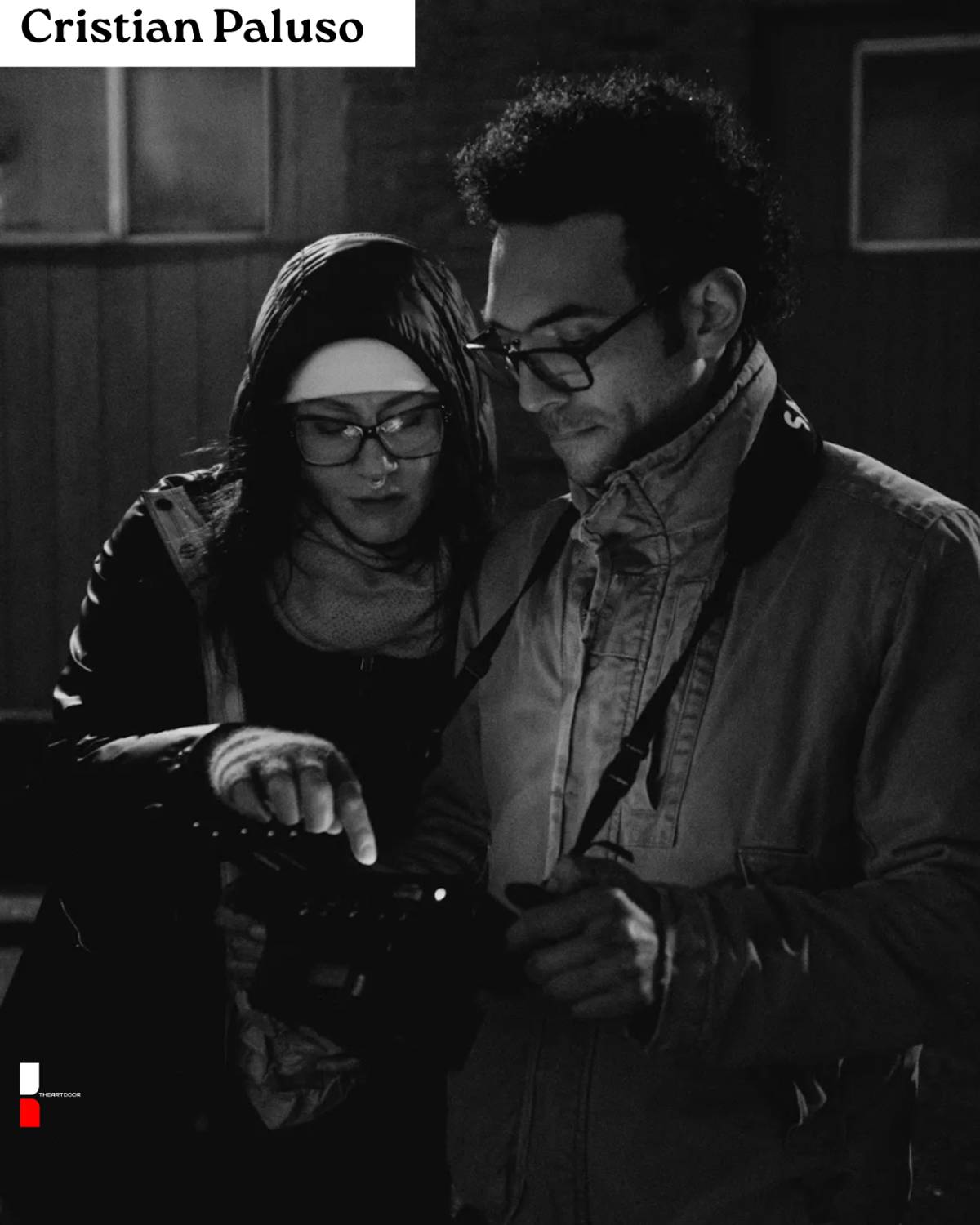The Timeless Power of Tragedy: Amanda Sthers on Literature, Empathy, and the Digital Divide
By Ariel Rose | Editor in chief: Adrienne Carter
ShareIn a riveting episode of 1O1 Square, French author and filmmaker Amanda Sthers sat down with host Ariel Rose to unravel the enduring magic of tragedy in literature, the perils of a social media-saturated world, and the profound role stories play in shaping human empathy and wisdom. It was a poignant reflection on why we need tales of suffering and redemption now more than ever, as humanity navigates an increasingly polarized digital age.

Amanda Sthers Photo: Shelby Duncan via Editions Stock
Tragedy: The Heartbeat of Storytelling
Sthers, whose work spans the spectrum from biting comedies to gut-wrenching dramas, kicked off the discussion with an old truth: that comedy and tragedy are two sides of the same coin. “Comedy is just drama in disguise,” she quipped, explaining that every great story hinges on a character’s struggle, and their path to overcoming or their demise by it. Whether through laughter or tears, narratives in books, plays, or films put the human condition on a highly visible stage, offering perspective and insight.
As a child, Sthers found refuge in stories. “Reading made me feel I wasn’t alone,” she recalled, describing how books connected her to characters who shared her struggles, even if they were fictional. This, she argued, is the artist’s true calling: to weave empathy into the fabric of storytelling, offering hope and preparing readers for life’s inevitable storms.

The Globe Theater
Rose shared his own journey with literature, recalling his teenage bewilderment at studying Greek tragedies like Oedipus Rex. “Why are we reading about this guy fated to such a grim end?” he remembered asking in seventh grade. Yet, years later, he recognized the wisdom embedded in those tales' lessons on jealousy, love, rage, and selfishness that resonate across time and become more visible in the world during adulthood. Sthers, pointing out that stories, from ancient myths to Shakespeare, are humanity’s oldest tools for decoding family dynamics, human behavior and societal rifts.
The Folly of Shielding Young Minds
Modern debates over education, particularly in the U.S., where book bans have ignited fierce controversy soon manifested within the conservation. Sthers didn’t mince words. “Banning books is absurd,” she declared, arguing that shielding children from complex narratives or characters robs them of tools to navigate life’s messiness. She drew parallels to religious texts like the Bible, packed with family dramas and moral quandaries, which have long served as guides for understanding the world.
While acknowledging that children process stories at different paces, Sthers stressed the need for age-appropriate exposure to literature. “Every book is a key to life,” she said, contrasting this with the unchecked flood of content children encounter on social media. Half-jokingly, she proposed, “Rather than ban books, I’d ban social media for young kids.” Citing research, she noted that reading long-form narratives like a 300-page novel builds critical brain functions, such as processing information and grasping nuance, which short-form platforms like TikTok erode.

Howard Lipin / San Diego Union-Tribune
Rose, who didn’t join Instagram until age 23, reflected on the challenges of growing up in today’s digital landscape. “I can’t imagine high school with all that noise, the facades and the inevitable self-comparison,” he said. Sthers, speaking as both a mother and a writer, lamented the loss of reflective time in a world that demands instant reactions. “Social media leaves no room for nuance or digestion,” she said, linking this to the stark polarization seen in events like recent U.S. elections, where common ground feels like a distant memory.
Empathy and Wisdom: Literature’s Gift
At the heart of the discussion was literature’s unmatched ability to cultivate empathy and self-awareness. Sthers argued that reading lets us “live” countless lives, not only becoming more accepting of different types of people, but also helping us discover who we are and who we’re not. “You become a hundred people before you become yourself,” she said, suggesting that avid readers gain clarity about their identity and dreams faster than those lost in social media’s curated facades.
Rose brought up Romeo and Juliet, challenging its reputation as a simple love story. “It’s about ending a cycle of hatred and eventual death because no one was mature or wise enough to end it,” he said, drawing parallels to modern conflicts like those in the Middle East. Sthers agreed, imagining the lovers as a Palestinian and an Israeli, a testament to literature’s power to illuminate paths beyond war. “Stories show there’s hope beyond conflict,” she said.
Yet, Sthers noted a troubling trend: a growing preference for “happy” stories over those that grapple with pain. This avoidance, she warned, stunts emotional growth. “Pain creates hatred,” she explained. “Reading about flawed heroes teaches you to empathize with others’ suffering.” Rose added that watching characters falter whether through betrayal, greed, or remorse builds compassion, shaping individuals who can respect differing perspectives in a divided world.
Reclaiming Wisdom in a Digital World
The digital age posed another challenge: how to inspire reading when attention spans are shrinking. Sthers criticized the over-scheduling of children’s lives, which leaves no room for boredom, a state she views as vital for imagination. “Boredom creates you,” she said, recalling the book-filled summers of her youth, free from screens. She playfully suggested “boredom summer camps” with books and space for daydreaming, a nod to the creative power of stillness.
To hook young readers, Sthers advocated starting with accessible stories like Spider-Man comics before guiding them to denser classics. “There are no bad books,” she insisted, sharing how her children’s love for reading began with simple tales. Rose agreed, calling for curricula that meet kids where they are, gradually introducing more challenging works.
Despite her critiques of social media, Sthers saw potential. “It can be a door to discovery,” she said, envisioning platforms that link users to books for deeper exploration. “Read about a volcano online? It should lead you to a book,” she mused, urging a fusion of technology and storytelling.

Jamie Grill/Getty Images
A Story for Our Times
As the interview wrapped, Sthers and Rose left listeners with a powerful reminder: stories are humanity’s oldest bridge, connecting us across time and space. In an era of fleeting reels and fractured discourse, literature remains a beacon of empathy, wisdom, and hope.
Perhaps the most striking takeaway wasn’t a loud call to action but in fact a more private revelation. As Sthers spoke of flawed heroes and cycles of conflict, one couldn’t help but wonder: Are we, like Romeo and Juliet, trapped in our own feuds, scrolling past the chance to understand each other? Or can we turn the page, rediscover the slow magic of a book, and find our way back to a shared humanity? In a world racing toward the next notification, that question lingers like the final line of a tragedy haunting, unresolved, and brimming with possibility.
About Amanda Sthers: is a French author, screenwriter, and filmmaker. She is the author of numerous novels, including Holy Lands and Les Promesses, and the writer-director of feature films such as Holy Lands and Promises. Her work explores themes of identity, family, empathy, and the emotional depth of the human experience.
Linkedin – https://www.linkedin.com/in/amanda-sthers-85822924
Instagram –https://www.instagram.com/amandasthers/


